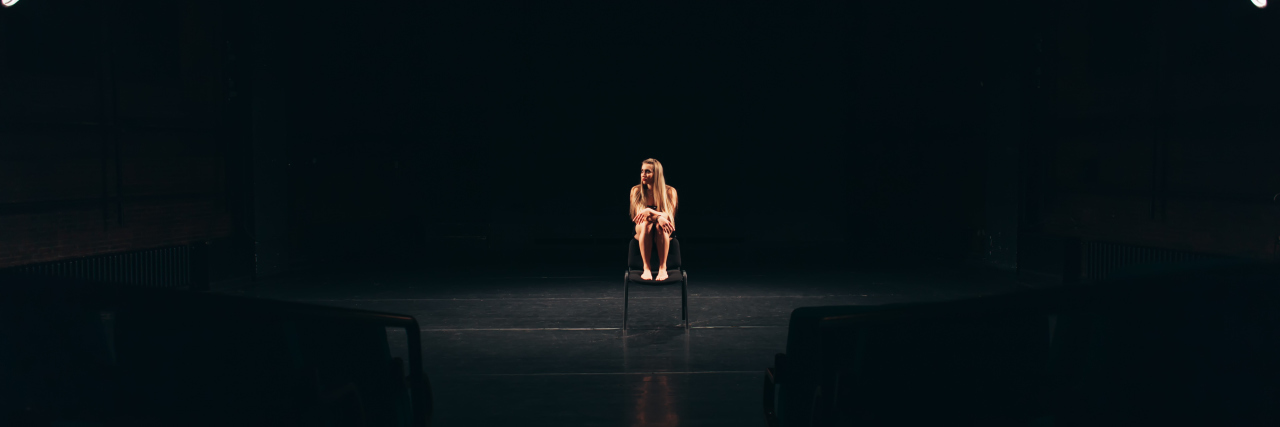When I was diagnosed with cerebral palsy at 18 months old, the consultant gave my mother a very blunt prognosis: I wouldn’t be able to walk, talk or feed myself. None of this fazed my mother, who has without a doubt been my champion ever since I entered the world three months early, weighing 3 pounds. And guess what?
It didn’t faze me either.
During my 22 years on this earth, I have achieved 10 G.C.S.Es, one AS-Level, three A-Levels, and one First Class Honors Bachelor of Arts degree from Sheffield Hallam University (subject: Film and Screenwriting). Thanks to my filmmaking and activism efforts, I have links in Hollywood – if I told you some of their names, you would definitely recognize a few. No, I can’t walk, and struggle a little with everyday tasks, but that matters little to me. I intend to be a trailblazer, standing (or sitting, rather) loud and proud on the stage of life.
This outlook isn’t always easy to maintain, mainly because the world we live in mostly caters to the able-bodied. Often my limitations have not been self-imposed, but rather mandated by a society that is not yet ready to accept me as I am. Able-bodied life frequently seems like a different existence entirely, like an alternate reality I can stare at longingly through the barriers that are preventing me from achieving it in full, something I can see but never entirely understand.
So what makes them think they can understand me? What gives them the right to pass judgment on me, to see me as an invalid in need of help, or worse a freak that does not deserve the stage she was gifted with? I have a theory. I believe that we live in a society so obsessed with perfection that it is easier to shun what is considered imperfect rather than accept it: to do so would be to shatter the illusion people have made for themselves.
Recently, I saw the film “The Greatest Showman,” and left with questions, I decided to research the real-life history of P.T. Barnum. Barnum decided to enter show-business sometime around 1834, and decided to exhibit those known as “freaks:” real people whose conditions could now probably be explained by medical science. The ethical implications of these exhibits have since been widely disputed, with sideshows being accused of exploitation – despite the fact that they gave many disabled people a good, steady job at a time where there were no benefits or welfare.
I find myself reflecting upon the question: have we really moved on from Barnum’s time? One would like to assume so, and yet I think not. Rights movements begin when there is a change of attitude amongst society – the lack of relative improvement in disability rights seems to prove to me that society is not yet ready to change its attitude in this manner. Still we are ostracized, still we are hidden away, and still we are exploited – it is just that now the entertainment we provide is not mocking laughter but rather “inspiration porn,” utilized in such a way to make able-bodied people feel better about themselves.
Over the years I have been told I am too driven, too ambitious, and should perhaps aim for something a little more “within my reach.” Some people hear my dreams and reply with derisive smirks and eye rolls, or hear of my previous adventures and think I am nothing but a braggart with an inflated sense of self-importance. But from the moment I was born, life threw obstacles at me that I had to fight to overcome. I was gifted with a voice – and it is a gift, for it is often denied to too many with a disability – and relative good health. I have fought too many battles and been given too many tools for an ignorant person’s judgment to render me silent, so forgive me if I’m not exactly a shrinking wallflower.
The time for hiding is over. We don’t need to be ashamed of our disabilities; we need to own them, like a badge of honor. We strive just as much as the able-bodied – if not more so – to be able to live our lives the way we see fit; why should we be guilt-tripped into thinking we are less than? The time of waiting in the wings is over; we need to be up front and center and not denied our limelight by anyone who might see fit to take it.
My name is Alice. I have cerebral palsy. I am a showman… and life is my stage.
Getty image by Aerogondo.

